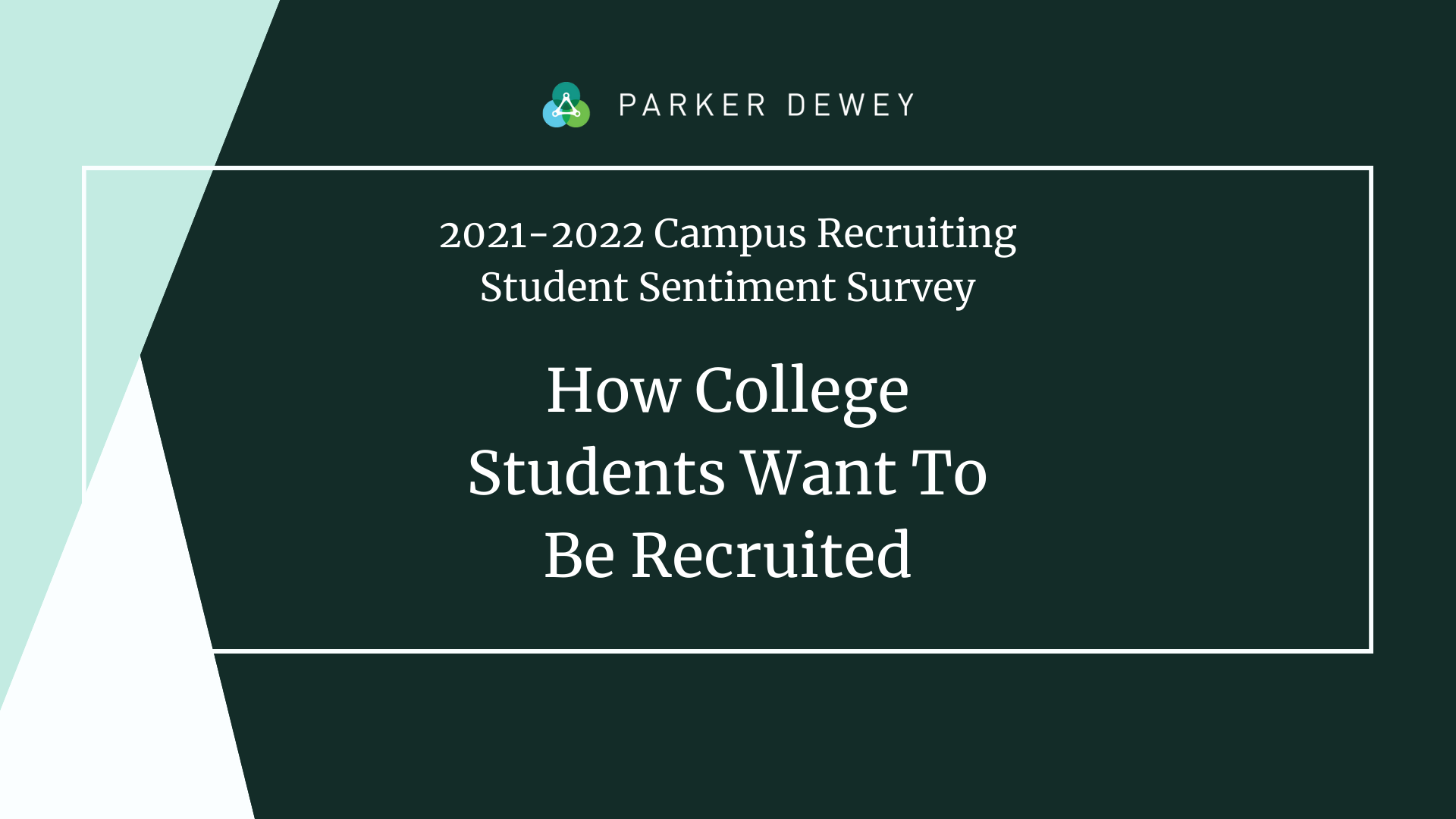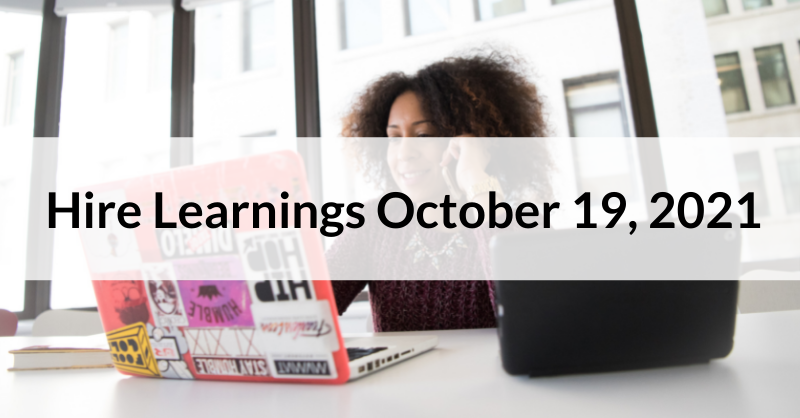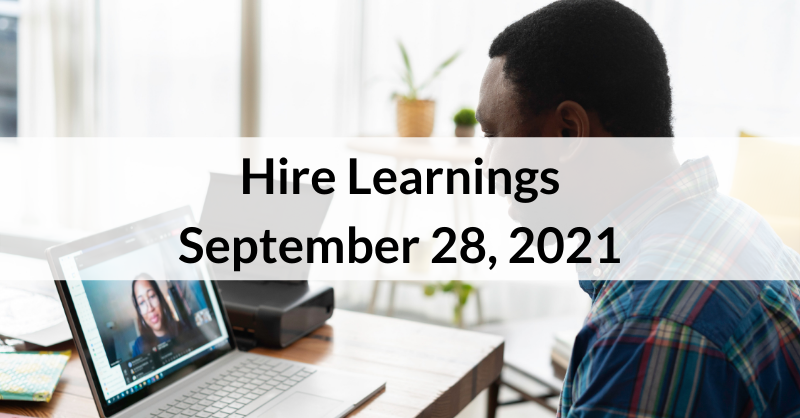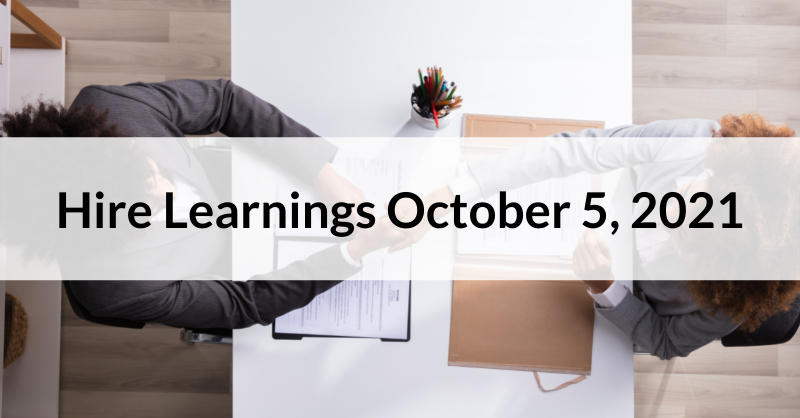
A Pulse Check on the Career Fair
What’s the state of the career fair so far this fall?
From what we've been hearing from employers and schools, attendance has been down anywhere from 20-80% from pre-COVID levels.
The key reasons are that students are Zoomed-out and question the value of the insights from these session. As a result, if they show up at all, many only attend the sessions for companies they're already planning to apply to (which kind of defeats the purpose for the companies trying to engage students).
This trend was confirmed by our just-released 2021 Campus Recruiting Student Sentiment Report, a survey of several hundred thousands college students who explicitly highlighted that these events are not how they want to engage with companies.
And while virtual career fairs and info sessions were meant to improve accessibility, many are reporting the opposite outcome as they create more discomfort for those from backgrounds underrepresented in the workforce, and the nature of registering for the online events makes it more difficult for the types of ad hoc interactions that are so valuable. (More on this in our report.)
To that, more companies have been embracing experiential recruiting tools as a response. They serve as a high-impact, low-lift way to overcome the challenges of virtual recruiting and complement what they have in place. What’s more: In our survey, 93% of college students said experiential recruiting was their preferred way to learn about companies and industries, demonstrate skills, and build relationships with prospective employers.
Ready to see the full report? Read the results here.
Jeffrey Moss, Founder and CEO
Colleges and companies across the nation have shifted to virtual processes to reach students transitioning from college-to-career. But are the primary tactics utilized by recruiters reaching high-potential candidates?
Parker Dewey surveyed students currently enrolled to understand how they want to engage with prospective employers.
In this full report, you'll discover answers to the following questions:
- How do students prefer to engage with recruiters?
- What do they want most to help them prepare for their careers?
- Do students really care about virtual career fairs?
- What uncertainties are students facing when it comes to securing a job?
Articles of the Week
First-gen college graduates get lesser jobs at lower pay than better-connected classmates - The Hechinger Report
Company Voice: Finding Early-Career Talent as the Steel Industry Continues to Rise - Parker Dewey
Why it makes good business sense to attract more employees from working-class backgrounds - The Conversation
First-gen college graduates get lesser jobs at lower pay than better-connected classmates - The Hechinger Report
“‘First-generation college students have no idea what happens after college. Like, what do you do? I didn’t know how to network or who to network with. I didn’t have anybody.’”
New research reveals that first-gen graduates accept job offers more quickly, make less money, are underemployed, and generally “have more trouble getting jobs than their better-coached and -connected classmates.” And while they’re still in college, first-gen students are “less likely to have paid internships” because of barriers like commute times, financial pressures, and full-time job responsibilities. This article takes a look at the “singular challenges” faced by first-gen grads and how experiential recruiting opportunities can support their future success.
Related reading: Why Traditional Internships Aren’t Always an Option
Company Voice: Finding Early-Career Talent as the Steel Industry Continues to Rise - Parker Dewey
"’Phenomenal’ is the first word Neal used in describing the Micro-Intern brought on to support his team. Neal highlights this Micro-Intern's ability to contribute new insights on recruiting, maintain strong attention to detail, and communicate consistently and professionally. ‘It's like he's an employee of ours,’ Neal said.”
We sat down with Neal Dasgupta of TMS International, a global corporation that manages steel production and supply chains, to chat about the three recruiting projects he’s hosted with the same student. Check out this post for Neal’s insights.
Related reading: Company Voice: Attracting Talent to the Banking Industry
Why it makes good business sense to attract more employees from working-class backgrounds - The Conversation
“Offering alternative routes into an organisation for skilled individuals is valuable for all concerned.”
In her latest piece for The Conversation, professor and fellow Marianna Fotaki, PhD., shares actionable steps employers can take to create more equitable pathways into professional roles. Not only can employers do more to attract and engage individuals from working-class backgrounds today, Dr. Fotaki suggests, but by considering “the root causes of socio-economic inequality and what they can do to tackle it,” organizations will stand out in the crowded marketplace of attracting and engaging a diverse workforce. We know that diversity is good for business, “but there is also a broader moral imperative, which will hopefully see more companies take on this approach,” Dr. Fotaki explains. “Working towards the fair treatment of all members of society is just the right thing to do.”
Related reading: How Micro-Internships Can Bring Diversity, New Perspectives, and Talent to Employers
This Week's Upcoming Webinar
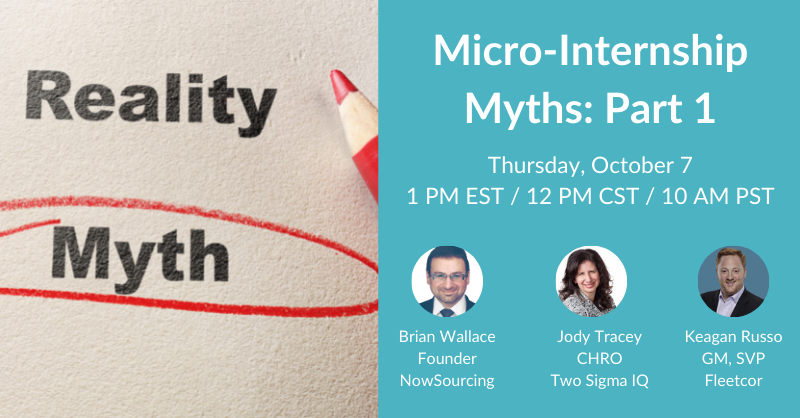
Join us on Thursday, October 7th when we sit down with hiring managers and human resource professionals who have used Micro-Internships to share the benefits and value they received. During Micro-Internship Myths: Part 1, we'll discuss common concerns from recruiters about how, why, and where Micro-Internships fit into the early-career talent pipeline. Plus show you exactly how you can work with hiring managers (even those that are too busy to volunteer for career fair duty) to launch a pilot program this year!
Then on Thursday, October 14th, we'll host Part 2 of this conversation where students and recent graduates that have participated in Micro-Internships will share the value and benefits that short-term projects provided them.
For more stories and insights on HR, recruiting, and diversity, click here to subscribe to our weekly newsletter Hire Learnings.


